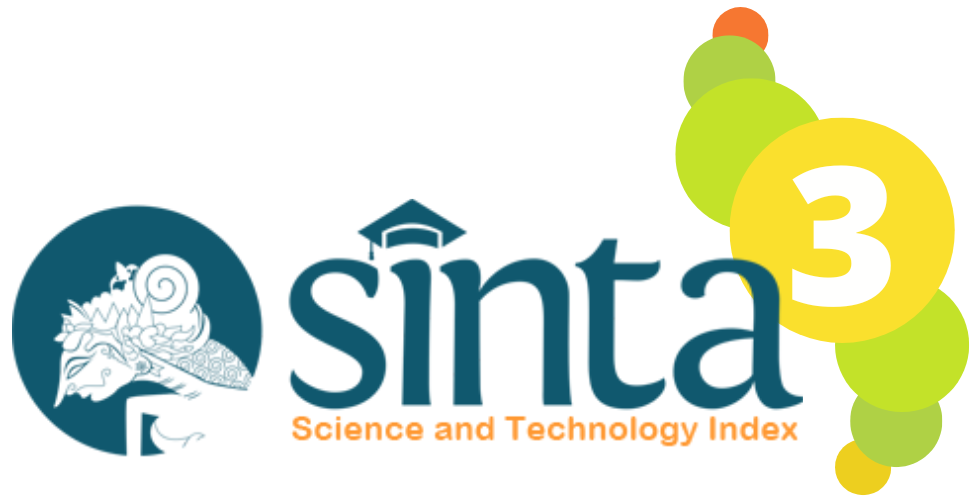PENGEMBANGAN BAHAN AJAR TEMATIK TERPADU BERBASIS PROBLEM BASED LEARNING UNTUK MENINGKATKAN KEMAMPUAN BERPIKIR KRITIS SISWA SD KELAS V
Sari
Kata Kunci
Teks Lengkap:
PDFReferensi
Blumhof, J., Hall, M., & Honeybone, A. (2001). Using problem-based learning to develop graduate skills. Planet, 4(1), 6–9. https://doi.org/https://doi.org/10.11120/plan.2001.00040006
Erceg, N., Aviani, I., & Mešic, V. (2013). Probing students’ critical thinking processes by presenting ill-defined physics problems. Revista Mexicana de Fisica E, 59(1), 65–76.
Griffiths, K. E. (2005). Personal coaching: A model for effective learning. Journal of Learning Design, 1(2), 55–65.
Hosnan, M. (2014). Pendekatan Saintifik dan Kontekstual dalam Pembelajaran Abad 21: Kunci sukses implementasi kurikulum 2013. Ghalia Indonesia.
Kemdikbud, 2017. Buku Guru Kelas V SD/MI. Tema 6 Panas dan Perpindahannya. Edisi Revisi 2017. Jakarta: Kemdikbud.
Kemdikbud. 2017. Buku Siswa Kelas V SD/MI. Tema 6 Panas dan Perpindahannya. Edisi Revisi 2017. Jakarta: Kemdikbud.
Kunandar. 2011. Guru Profesional. Jakarta: Rajagrafindo Persada
Kuncoro, E., & Riduwan, M. B. A. (2012). Cara Mudah Menggunakan dan Memaknai Path Analysis. Bandung: Alfabeta.
Liana, E. (2018). Pengembangan Bahan Aajar Berbasis Problem Based Learning Untuk Meningkatkan Keterampilan Berpikir Tingkat Tinggi. Universitas Lampung.
Melindawati, S. (2016). Pengembangan Bahan Ajar Tematik Terpadu Dengan Model Problem Based Learning di Kelas IV Sekolah Dasar. Elementary School Journal PGSD FIP UNIMED, 5(1).
Nasrul, S. (2018). Pengembangan bahan ajar tematik terpadu berbasis model problem based learning di kelas iv sekolah dasar. Jurnal Inovasi Pendidikan Dan Pembelajaran Sekolah Dasar, 2(1).
Nurbaeti, R. U. (2019). Pengembangan Bahan Ajar IPA Berbasis Problem Based Learning untuk Siswa Kelas V Sekolah Dasar. Jurnal Cakrawala Pendas, 5(1).
Prastowo, A. (2011). Panduan Kreatif Membuat Bahan Ajar Inovatif. Yogyakarta: DIVA press.
Rahman, M. H. (2014). Professional competence, pedagogical competence and the performance of junior high school of science teachers. Journal of Education and Practice, 5(9), 75–80.
Rahman, M. H. (2017). Using discovery learning to encourage creative thinking. International Journal of Social Sciences & Educational Studies, 4(2), 98.
Rahman, M. H. (2013). Pedagogical CompetenceJunior High School Science Teacher. Proceedings of the 2nd International Seminar on Quality and Affordable Education (ISQAE 2013), 383–388.
Rahman, M. H., & Ahmad, Z. (2017). Kompetensi Guru IPA SMP Pulau Bacan Kabupaten Halmahera Selatan. Humano: Jurnal Penelitian, 7(2), 207–216.
Riwanti, R., & Hidayati, A. (2019). Pengembangan Modul Pembelajaran Tematik Berbasis Pendidikan Karakter di Kelas V Sekolah Dasar. Jurnal Basicedu, 3(2), 572–581.
Twiningsih, A., Sadjidan, S., & Riyadi, R. (2017). Pengembangan Modul Pembelajaran Tematik Ekosistem Berbasis Problem Based Learning Untuk Meningkatkan Berpikir Kritis Siswa Kelas V SD Negeri Kleco 1 Kota Surakarta Tahun Pelajaran 2016/2017. Seminar Nasional Teknologi Pembelajaran Dan Pendidikan Dasar 2017, 196–203.
DOI: https://doi.org/10.33387/j.edu.v18i2.2100
Refbacks
- Saat ini tidak ada refbacks.
| Journal Name | Jurnal Edukasi |
| Print ISSN | 1978-6115 |
| Elektronik ISSN | 2597-9213 |
| Publisher | Fakultas Keguruan dan Ilmu Pendidikan (FKIP) Universitas Khairun |
| Address | Jalan Bandara Sultan Baabullah Kampus I Unkhair, Kelurahan Akehuda, 97728 Kecamatan Kota Ternate Utara, Provinsi Maluku Utara |
| Country | Indonesia |
| j.edukasi@unkhair.ac.id / edukasi2019@gmail.com | |
| URL | https://ejournal.unkhair.ac.id/index.php/edu/index |
| DOI | http://doi.org/10.33387/edu |
Indexed By:
-----------------------------------------------------------------------------------------------------------------------------------------------------------------------------

EDUKASI is licensed under a‚ Creative Commons Attribution-NonCommercial 4.0 International License.














